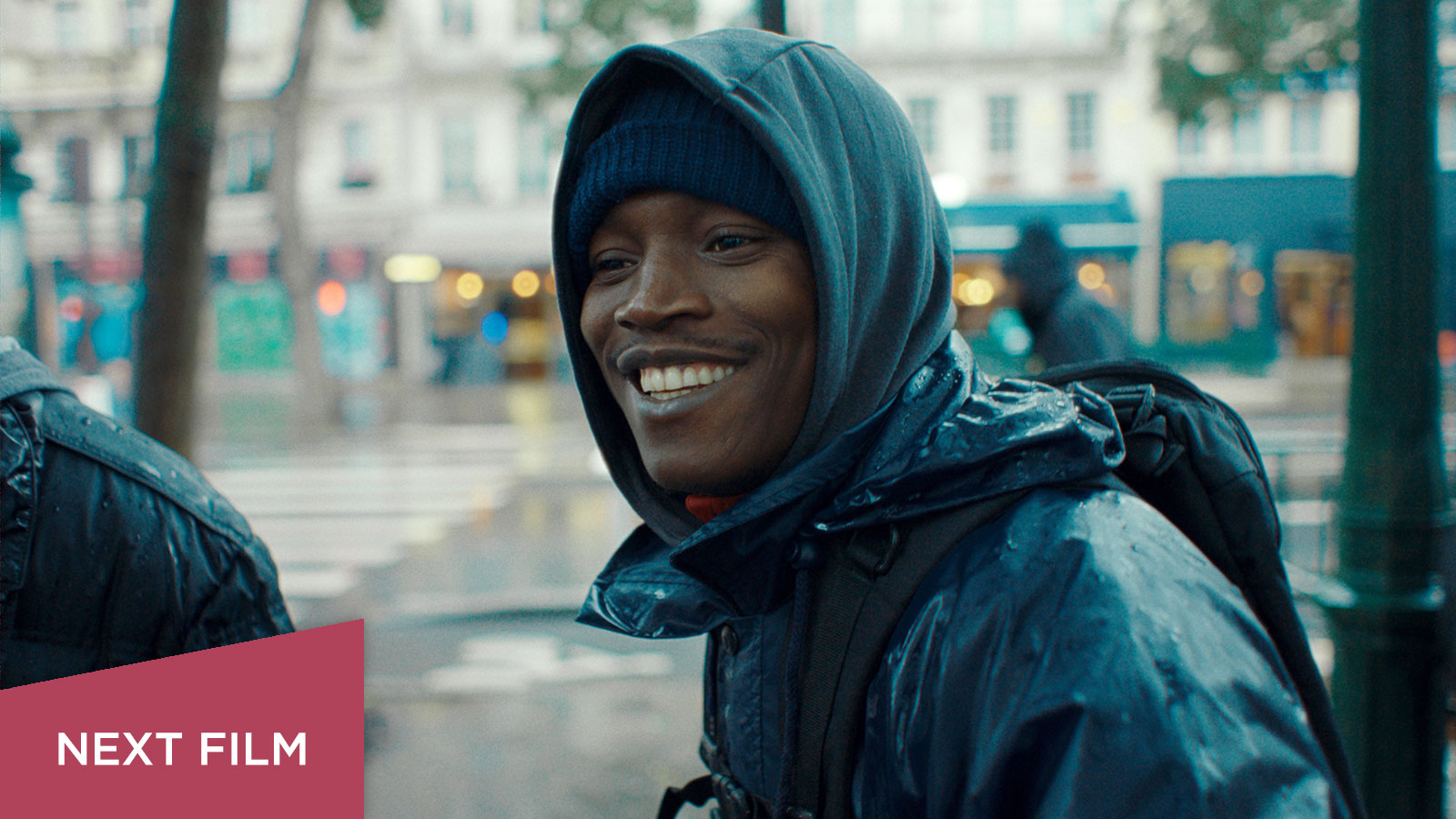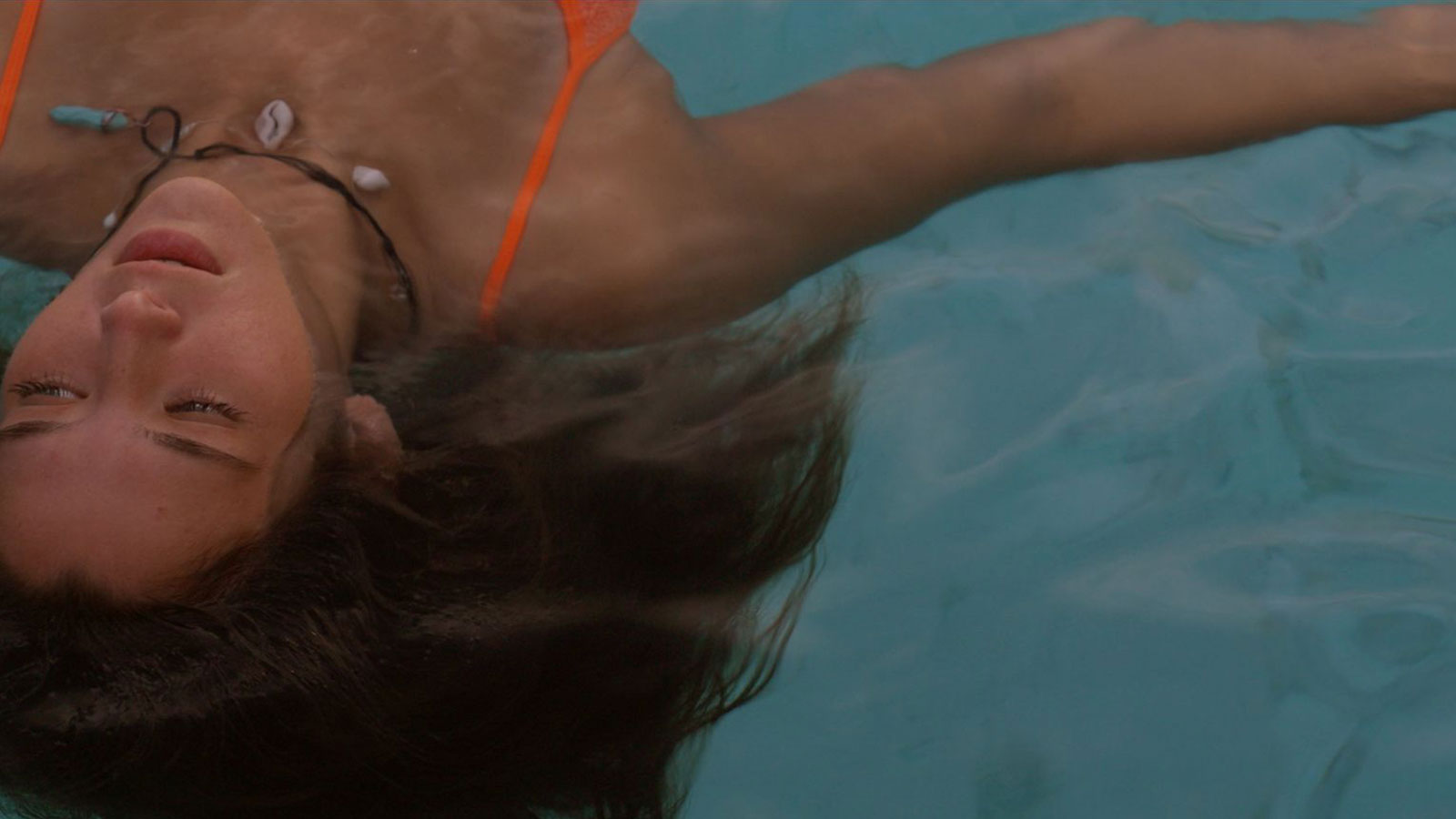
Souleymane’s Story
Boris Lojkine · 2024 · 93 minutes
August 13 · Regal Riviera · 7:00 p.m.
Winner of the Jury Prize and Best Actor in Un Certain Regard at the 2024 Cannes Film Festival.
“For my money, the best discovery of this year’s Cannes Film Festival…. Lojkine’s film comes with a refreshing generosity of spirit. There are bad-faith actors and opportunists in this world, the film admits, but the real enemy is in the system: how it is failing to protect people, both in terms of immigration and gig-economy work.” – Rory O’Connor, The Film Stage
“[Lojkine] pulls it off without moralizing, infusing the film with the drive and tension of a thriller.” – Martin Kudlac, ScreenAnarchy
In the opening scenes of Boris Lojkine’s urgent third feature, a Guinean immigrant bicycles frantically from one food delivery pickup to another, the camera racing along just behind him, revealing a singular new view of Paris from the perspective of some of its most underappreciated workers.
Over the two days that follow, Souleymane (played by non-professional actor Abou Sangaré in a riveting first performance) struggles to stay afloat while preparing for a crucial immigration asylum interview. Stylistically inspired in part by Cristian Mungiu’s 2007 Cannes winner 4 Months, 3 Weeks and 2 Days, Lojkine’s bracing, artful realism offers an equally affecting account of a migrant laborer’s experience finding himself caught up in the mechanisms of an uncaring and unforgiving society.
Shooting on city streets with concealed cameras, Lojkine creates a simultaneously pulse-pounding and heartrending view of contemporary Parisian life.
Programmer’s Note
When Jean-Pierre and Luc Dardenne won the top prize at the 1999 Cannes Film Festival, they inadvertently kicked off a decade or more of copy-cat films. Shot in documentary style in the Dardenne brother’s home town of Leige, Belgium, Rosetta is about a desperate young woman whose precarious existence is dependent upon her keeping a job — any job. In the years since, “Dardenne” has become critical shorthand for a resurgent style of naturalistic, socially-conscious filmmaking that was a 21st century throwback to the post-war Neo-realist movement in Italy and to the moral concerns of French filmmaker Robert Bresson. (Rosetta includes a direct call-back to a memorable scene in Bresson’s Mouchette.)
In recent years, the Dardennes’ sincere humanism and formal innovations have fallen a bit out of style, which is why it was such a thrill to me when I discovered Souleymane’s Story in Toronto last year. It’s no spoiler to say that the film spells out its drama in the opening moments, when we learn that Souleymane has limited time to prepare for an interview that will likely determine the course of his and his family’s life. It’s a small-scale story with unimaginably high stakes, an anxious thriller about our everyday world. — Darren Hughes



